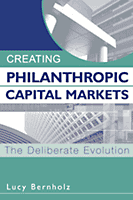Warning - the following is an open-ended, free write, procrastination exercise because I'm not getting anywhere on this draft chapter I'm working on.
And, yes, I am back on this rant again - I won't get off this line of thinking until I get this new book done. Which is going to take awhile since all I have now is a huge pile of notes, a huge pile of reading to do, and several half-started chapters.
I continue to think about the ramifications for community philanthropy in this time of rapidly changing intellectual property laws. Why? Well, for one thing, the way we act on our community instincts is changing - from where we find and talk about movies to how we learn about world events to the ways my neighborhood organizes itself to get the dog park fixed.
Mobile phone blogging,
mobile phone activism and
citizen journalism are all examples of how quickly we've come to rely on individuals with cell phones to provide us with news-worthy content.
Everyone in my community is capable of snapping the photo, recording the audio, and wirelessly emailing it to the news station - helpful in a disaster, yes, but what about the crazy old lady around the corner who just likes to rat on her neighbors? We can all help each other out, we can also all turn each other in.
Trust and reputation matter in the P2P world in powerful ways - how are trust and reputation changing on the neighbor to neighbor level? How does this influence how we create, find, support and leave communities?
And what about property and philanthropy? In talking about how philanthropic foundations act on their values, a colleague of mine recently commented that "the relationship between how great wealth is created and the problems that great wealth creation creates is philanthropy's great paradox."* It often reveals itself in differing value systems between board members and staff, but it runs much deeper than that. So deep, that most foundations simply start by accepting the paradox, after all what can they do about it?
This makes it hard to talk about private versus community ownership. This makes it hard to talk about property. This makes it a real problem to think about intellectual property, private use and rights, and community use and rights at a time when everything from baby names to phrases like "freedom of expression" are being trademarked or copyrighted and entire businesses exist to do nothing but file patents for business processes and sue those who don't pay license fees. But why should this matter to philanthropy? Well, for one thing, ideas matter to philanthropy. Who owns and who can use those ideas should matter to philanthropy. Who decides what ideas get heard where and when should matter to philanthropy. How can progress on environmental issues, artistic creation, education, health care, human rights, scientific inquiry, playground design or anything else philanthropy supports actually be achieved if ideas and strategies need to be run past a patent attorney to make sure their available for use?
Philanthropy needs to care about intellectual property, private ownership, and community use. But it seems to care about them in the same way it cares about regulatory systems, economic injustice, and advocacy as a change strategy - which is to say episodically and reluctantly. Which is too bad. Because I think private philanthropy is well positioned to make a huge difference on these issues, for the betterment of fair use and community rights.
*This may apply to many foundations, though perhaps not those at the conservative political end of the spectrum (for whom there is no paradox) or for those on the far liberal, social justice end who have deliberately organized themselves to put decisions and wealth in the hands of activists.




